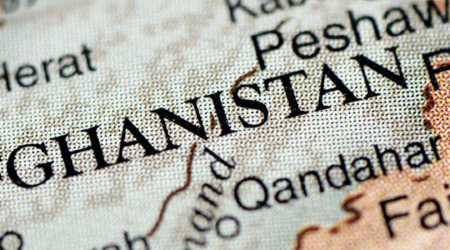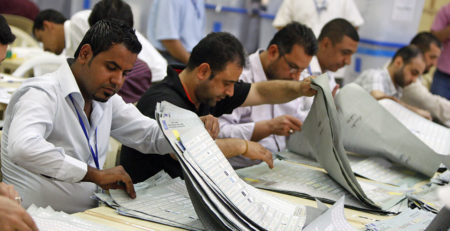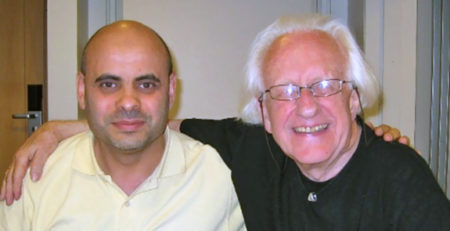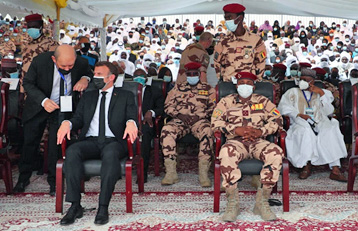Monthly Afghanistan News Roundup – November 2023
Ozair Khan
Within the framework of the Fiqhi Pathways project implemented jointly by CPI-Geneva and the Swiss FDFA’s Peace and Human Rights Division, engagement with Deobandi scholars of or close to Taliban and Pakistan is pursued to promote governance in line with IHL and Islamic jurisprudence through Fiqhi dialogue exchanges. This monthly newsletter aims to keep track of the discussions and debates among scholars on issues of governance policies of the Taliban, especially in the areas of education, social policies, and statecraft and governance institutions.
Moscow and Dushanbe Meetings
In the span of just a few days, opponents to the Taliban have attended back-to-back international conferences on Afghanistan. They used these meetings as a platform to express their many grievances against the Islamic Emirate.
A forum titled “Afghanistan between Past and Present” took place in Moscow on November 23 [1]. The event was organised by the “Just Russia” political party, which, although generally considered part of the broader opposition, tends to be sympathetic to Putin’s foreign agenda.
The conference saw the participation of special representatives and senior officials from Russia, China, Pakistan, Iran, India, Kazakhstan, Kyrgyzstan, Tajikistan, Turkmenistan, and Uzbekistan, and interestingly well-known critics of the Islamic Emirate.
Some recognised names among the participants were political actors of the previous Afghan Republic, like Fawzia Kufi and Shukria Barakzai, who embody feminism in the Afghan context. Additionally, Muhammad Muhaqqiq, a former member of parliament who recruited Shiites to help the Assadists during the conflict in Syria, was present. But most notable of all was Ahmad Massoud’s attendance.
The participants conversed about the different evolutions in Afghanistan. A significant point of discussion revolved around creating a government that genuinely includes all ethnicities. As a reminder, the Taliban, regardless of being predominately Pashtun, believe their ideology is above and transcends ethnic considerations, hence their rejection of an ethnic quota system. On the other hand, the opposition, present in Moscow, considers the Taliban’s approach detrimental to ethnic cohesion. The ideal Afghan state, they argue, should include all ethnic groups in Afghanistan.
During the conference, Ahmad Massoud criticised Feridun Sinirlioglu, the UN special coordinator, on his recently published assessment report of the context in Afghanistan for the UN Security Council. Sinirlioglu’s paper is a roadmap for interaction with the Taliban. He calls for the Taliban to create a constitution and start an intra-Afghan dialogue. However, Ahmed Massoud utterly rejects these recommendations because they imply, in his opinion, normalising ties with the Islamic Emirate in specific situations. For example, from Sinilioglu’s report, one can understand that the UN would be more open to contact with the Taliban if they officialise a constitution. For Ahmed Massoud, the Afghan resistance will only sit at the negotiation table if and once the Taliban have been weakened and thereby brought by force to the table [2]. Unsurprisingly, members of Ahmed Massoud’s resistance, the National Resistance Front (NRF), have allegedly restarted their operations on the ground in Kunduz and Badakhshan [3]. This echoes what Ahmad Massoud’s uncle, Ahmad Wali Massoud statements reported by Jamran magazine, which focuses on Afghan Shia affairs before the launch of the Moscow conference. Wali Massoud said that the NRF aims to replicate Ahmed Shah Massoud’s military opposition to the Taliban. He also said that the NRF would use the Moscow gathering to strategise ways to unite various anti-Taliban groups and positions to form a cohesive front, as Rabbani and Ahmed Shah Massoud did between 1996 and 2001 [4].
Perhaps in response to these declarations, the country’s first president after 2001, Hamid Karzai, said in a recent interview with the Japanese Kyodo news agency that he no longer wants the regime to fall in Afghanistan. Mr Karzai declared: “We are no longer in favour of Afghanistan conflicts; conflicts will complicate the situation. We do not want regimes to fall in any way because we have had enough. We want the unity of Afghans for better future and policy reforms.” [5]
The Taliban have similarly denounced Sinirlioglu’s conclusions, asserting that their government is inclusive and represents different ethnic and religious groups. They likewise commented that any attempt to bring back failed figures of the past or form a coalition government runs against the sacrifices made by the Afghans, even though they had previously promised to start an intra-Afghan dialogue during the Doha negotiations [6]. For now, the window for that is completely closed. Regarding the constitution, Zabihullah Mujahid, the spokesperson of the Islamic Emirate, has confirmed that the drafting of the constitution is underway but is not a priority [7].
Wahid Faqiri, an Afghanistan affairs expert, suggests that even with the Russian government not being directly involved in organising this conference, the location being Moscow could imply the Kremlin’s frustration with the Islamic Emirate since it had to facilitate and accept the presence of noteworthy Taliban critics [8]. Russia has been critical of the Taliban in the past. For example, last September, the Russian diplomat Zamir Kabulov declared that the current Taliban regime needs to be ethnically more diverse [9]. However, for Faqiri, the latest source of resentment for the Kremlin regarding the Taliban is the latter’s cooperation with the US in restraining Al Qaeda affiliated groups present on Afghan soil. Recent comments by Zalmay Khalilzad, the former US ambassador to the UN and a key figure in the Doha Accords, that American intelligence and information agencies have a favourable view of the Taliban [10]. are presented by supporters of this view as proof of Taliban’s pragmatism. Therefore, allowing and most likely helping fund such a summit in Moscow is a direct display of disapproval by Russia. The Kremlin’s attitude towards the Islamic Emirate can be described as “duri wa dusti”, which means friendship from afar. While Russia occasionally makes positive remarks about the Taliban’s achievements, it also distances itself from the Islamic Emirate on other occasions, as was the case in this Moscow meeting [11].
The Afghan Institute for Strategic Studies (AISS), a relic think tank from the pre-Taliban takeover, organised the 11th Herat Security Dialogue, titled “Reimagining Afghanistan: Ways Forward,” in Dushanbe, Tajikistan, on November 27 and 28. The annual Herat dialogues were well-known gatherings for local and international actors concerned about Afghanistan’s future. Over 150 global experts, politicians, Taliban opponents, and representatives from 20 countries gathered for this edition to address the situation in Afghanistan. During the two-day conference and several panel discussions, they discussed various aspects, such as the world’s engagement with Afghanistan. The panellists covered essential topics, including women’s rights, drug trafficking, counterterrorism efforts, diplomatic relations with neighbouring countries, and the support for anti-Taliban political forces to establish an inclusive government for all. The conference provided another occasion for Taliban critics to unite and express their frustrations. A recognised attendee was Ismail Khan, a former warlord who called the international community to pressure the Taliban to have intra-Afghan talks. Nonetheless, some participants were much more pragmatic. Former UK ambassador to Afghanistan, Nicholas Kay, endorsed Sinirlioglu’s recommendations and emphasised the international community’s responsibility to support his UN-mandated assessments [12].
The Fate of Afghan Refugees
In last months’ newsletter [13] we explained that in what appeared like a punishment for Tehrek Taliban Pakistan’s (the Pakistan Taliban, usually referred to as “TTP”) alleged presence in Afghanistan, the Pakistani government decided to start expelling 1.7 million Afghans on its soil [14]. The policy is supported by data showing a 60% surge in terrorist attacks within Pakistan following the Taliban’s takeover in August 2021 [15], resulting in the loss of 2300 lives [16]. This alleged data also affirms that Afghan nationals within Pakistan carried out more than half of the 24 suicide attacks in Pakistan over the last few months [17].
So far, several reports mention that more than 400,000 refugees have already been deported. The scenes at the border are disheartening, and this influx of refugees will be a disastrous blow to the already weakened Afghan economy. The Islamic Emirate has set up refugee centres, but it will undoubtedly require the help of the international community. It is also worth noting that Pakistan is not the only country deporting Afghan refugees. Reports indicate that 400,000 refugees have made their way to Afghanistan from Iran this year [18]. Nevertheless, the strained Pakistan-Afghanistan relationship and swift deportation of Afghans have overshadowed Iran’s actions.
On November 11, Pakistan’s special representative for Afghanistan, Asif Durrani, reiterated the warning, stating that Afghanistan must choose between Pakistan and the TTP [19]. Ihsanullah Tipu Mehsud, director of the Islamabad-based Khorasan Diary, a media outlet tracking militant groups activities in Afghanistan and Pakistan, said that Pakistani officials feel that they have exhausted all diplomatic and political options. He stated:
“Here, the current mindset is that the TTP can only be contained through force. One possible option being considered here now is to begin cross-border strikes on suspected TTP bases and hideouts inside Afghanistan.” [20]
The Taliban is not a monolithic entity; instead, it is composed of various subgroups that display different levels of sympathy towards Pakistan. Mullah Muhammad Yaqub, the son of Mullah Omar, is an example of a key Taliban figure who consistently critiques Pakistan [21]. Yet, due to this dire situation, even those on the opposite side of the spectrum regarding Pakistan denounce their neighbour. Amir Khan Muttaqi, the Afghan acting Minister of Foreign Affairs, known for his cordial relationship with Pakistani officials, expressed doubts about the Durand line’s legitimacy in a BBC interview last month [22], underscoring the heightened tensions. The sensitivity surrounding the question of this border between the two countries is high, and its mention is usually deliberately avoided to maintain some semblance of a good relationship. However, Amir Khan Muttaqi’s proposal to renegotiate the border demarcation highlights the deteriorating bilateral relationship between Afghanistan and Pakistan.
The Ulama’s involvement in this unfortunate affair, especially in the public eye, has been relatively insignificant. Maulana Fazlu Rahman and other scholars from Pakistan’s Deobandi school, who share the same ideology as the Taliban, have raised alarms about the deepening distrust between the two countries [23].
The Taliban’s own way
Perhaps due to the UN’s inadequate responsiveness to the humanitarian crisis in Gaza, the Taliban are comforted in their idea of not making any ideological concession because either way the Taliban thinking goes, the international community will never be happy. This is why Zabihulllah Mujahid declared that until the UN decides to recognise the Islamic Emirate, it shall continue to apply its understanding of the Shariah and that even if the UN begins considering the recognition of the Islamic Emirate, it will only apply international laws and norms which don’t contradict its vision of Islamic law [24]. Another new example demonstrating the Taliban’s conscious decision of not taking into account Western secular considerations is the fact that the Academy of Sciences, controlled by the Taliban, directed the Ministry of Education and Higher Education to include the mention of hudud (some aspects of Islamic penal law) and qisas (retribution) in the curricula of schools and universities [25].
Despite such comments, the Islamic Emirate is well conscious of its contemporary governance-related challenges, which leaves the door open for international actors to work on specific topics for some trust building. Muhammed Nadeem, the acting Minister of Higher Education, said that the Taliban aims to launch new Masters and PhD programs. This aligns with the announcement by Najibullah Haqqani, the Minister of Communication, who said that religious scholars should not hate universities and that university lecturers should not despise religious scholars [26].
As stated in previous newsletters as well, the Taliban are most likely here to stay and have started shaping Afghan governance institutions to their image. However, certain aspects of their conduct indicate their understanding that Afghanistan’s governance must meet basic standards for the Islamic Emirate to function internally and to establish ties with the international actors. Therefore, the international community should at least engage the Taliban on these issues.
References
[1] https://kabulnow.com/2023/11/afghanistans-anti-taliban-forces-gather-in-moscow/
[2] https://www.afintl.com/en/202311236967
[3] https://twitter.com/aamajnews_EN/status/1730222166090657958
[4] https://www.jamaran.news/%D8%A8%D8%AE%D8%B4-%D8%A8%DB%8C%D9%86-%D8%A7%D9%84%D9%85%D9%84%D9%84-
[5] https://english.kyodonews.net/news/2023/11/0eb06d40c056-taliban-should-not-be-forcibly-removed-ex-afghan-president-karzai.html
[6] https://www.afintl.com/en/202311210262
[7] https://tolonews.com/afghanistan-186103
[8] https://www.youtube.com/watch?v=fw-_CRwtw0Y&t=377s
[9] https://www.afghanistantimes.af/russia-urges-inclusive-afghan-government-deemphasizes-taliban-recognition/?__cf_chl_tk=dYeofDWBZzEFrLWf6ZWnqpehM1gqunhgLEXj7tsHaPQ-1702236236-0-gaNycGzNDXs
[10] https://www.youtube.com/watch?app=desktop&v=VuTCT4H4vGA
[11] https://www.youtube.com/watch?v=I-DXvzwoqwM&t=165s
[12] https://8am.media/eng/conclusion-of-herat-security-dialogues-national-discourse-for-a-democratic-afghanistan-is-imperative/
[13] https://cpi-geneva.org/monthly-afghanistan-news-roundup-october-2023/
[14] https://www.reuters.com/world/asia-pacific/pakistan-orders-all-illegal-immigrants-leave-after-suicide-bombings-2023-10-03/
[15] https://www.rferl.org/a/afghan-taliban-pakistani-taliban-choice-allies/32703521.html
[16] https://www.rferl.org/a/pakistan-suicide-attack-afghan-national/32701954.html
[17] https://www.rferl.org/a/pakistan-suicide-attack-afghan-national/32701954.html
[18] https://www.khaama.com/more-than-400000-afghan-migrants-return-home-from-iran/
[19] https://www.rferl.org/a/afghan-taliban-pakistani-taliban-choice-allies/32703521.html
[20] https://www.rferl.org/a/afghan-taliban-pakistani-taliban-choice-allies/32703521.html
[21] https://tribune.com.pk/story/2444488/deportation-drive-taliban-minister-threatens-pakistan-of-consequences
[22] https://tolonews.com/afghanistan-185923
[23] https://www.samaa.tv/208734177-fazlur-rehman-bemoans-deportation-of-afghan-refugees
[24] https://twitter.com/ZawiaNews/status/1726670831357501732?s=19
[25] https://www.afintl.com/en/202311201920
[26] https://twitter.com/TOLOnews/status/1725833419303649773












